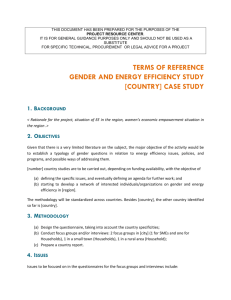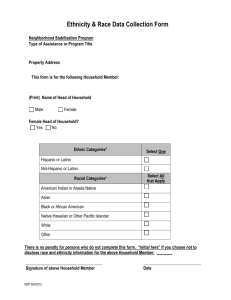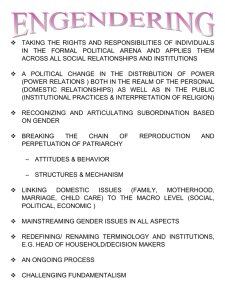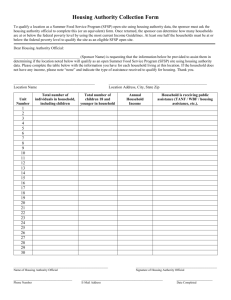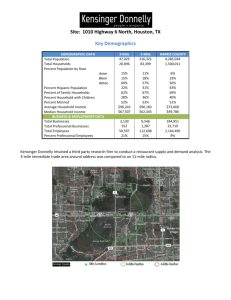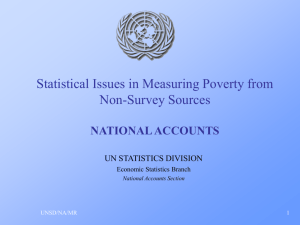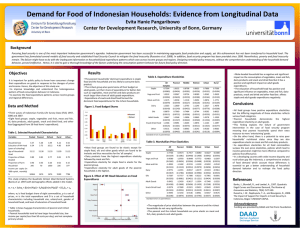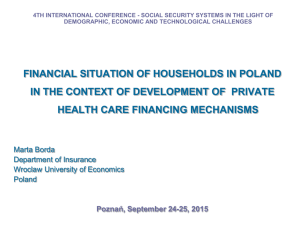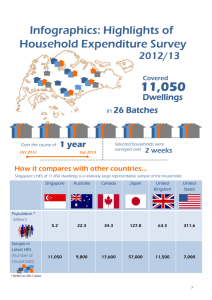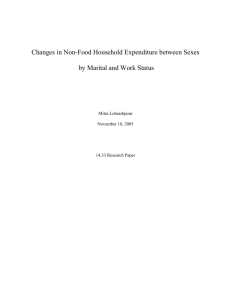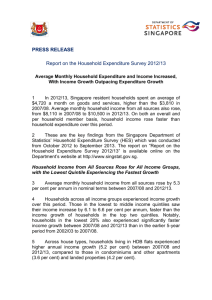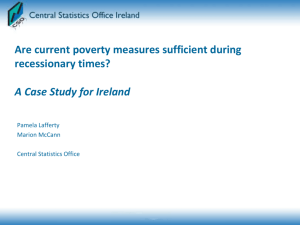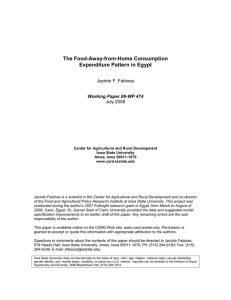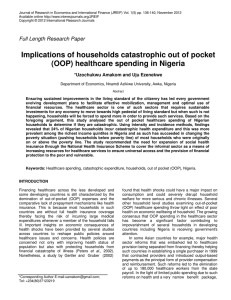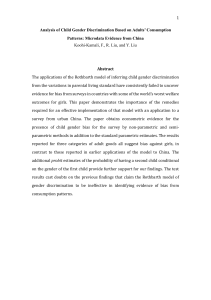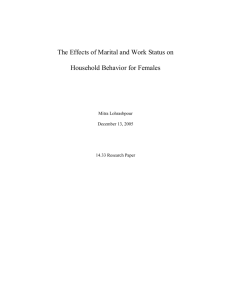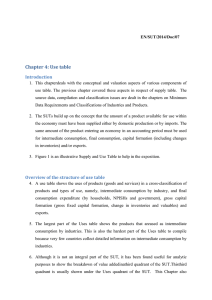Sociological theme: Family life
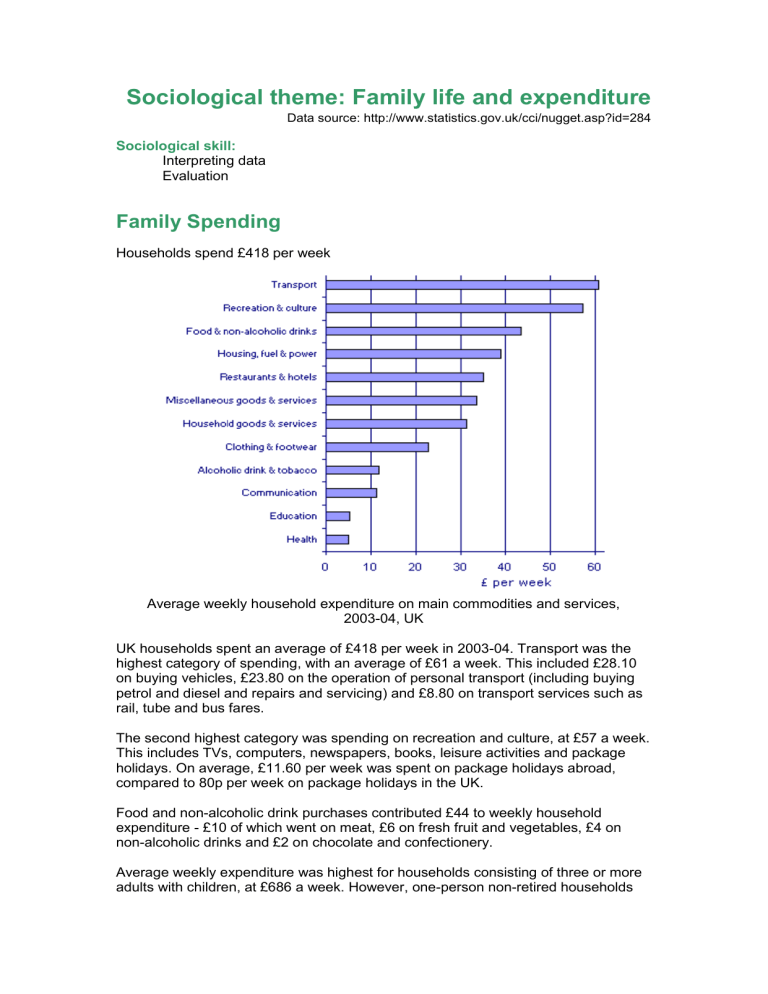
Sociological theme: Family life and expenditure
Data source: http://www.statistics.gov.uk/cci/nugget.asp?id=284
Sociological skill:
Interpreting data
Evaluation
Family Spending
Households spend £418 per week
Average weekly household expenditure on main commodities and services,
2003-04, UK
UK households spent an average of £418 per week in 2003-04. Transport was the highest category of spending, with an av erage of £61 a week. This included £28.10 on buying vehicles, £23.80 on the operation of personal transport (including buying petrol and diesel and repairs and servicing) and £8.80 on transport services such as rail, tube and bus fares.
The second highest category was spending on recreation and culture, at £57 a week.
This includes TVs, computers, newspapers, books, leisure activities and package holidays. On average, £11.60 per week was spent on package holidays abroad, compared to 80p per week on package holidays in the UK.
Food and nonalcoholic drink purchases contributed £44 to weekly household expenditure - £10 of which went on meat, £6 on fresh fruit and vegetables, £4 on nonalcoholic drinks and £2 on chocolate and confectionery.
Average weekly expenditure was highest for households consisting of three or more adults with children, at £686 a week. However, one-person non-retired households
spent the most per person at £281 a week. Households with two adults and two children spent an average of £611 a week.
Expenditure also varies with the age of the household reference person. Those households where the reference person was aged 30 to 49 spent the most, on average, at £525 a week. Those where the reference person was aged 75 and over spent the leas t, at £183.
Averaged over the three years from 2000/01 to 2003/04, total expenditure varied from £486 a week in London to £336 a week in the North East. London, the South
East and the East of England were the only regions in which the average expenditure was higher than the UK average. Spending in the North East was 17 per cent lower than the UK average.
Source: Expenditure and Food Survey, Office for National Statistics
Notes:
All amounts are rounded to the nearest 10p.
Questions: Knowledge and Interpretation
1. What is a household?
2. What did the average household in Britain spend each week in 2004?
3. What was the largest expense for households in Britain?
4. What expenditure was taken into account when calculating the cost of transport?
5. What costs were taken into account when calculating expenditure on recreation and culture?
6. How much was spent on clothing and footwear on average per week per household?
7. What kind of household spent most on average?
8. Which kind of household spent most per person?
9. Suggest reasons why the expenditure of those households where the reference person was aged 75 and over averaged much less per week than for households where the reference person was much younger.
10. Which three items had the lowest expenditure per household? Explain why this might be.
Questions: Analysis and evaluation
11. How useful is the concept of household to an analysis of family life in Britain?
12. How might patterns of household expenditure vary according to the following variables:
Age?
Gender?
Social class?
Geographical locality?
Think for yourself
Marxists say that families have become a ‘unit of consumption’. This means that families support capitalism through buying rather than making goods. Is this a useful concept when thinking about modern Britain?
